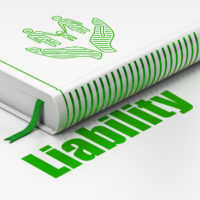Keys in the Car Unattended: Who Is Liable?

The majority of drivers take very good care of their vehicles, and are well aware of the laws governing the use of a car or truck in public places. However, everyone makes mistakes – sometimes people leave their vehicles on when they should not, or sometimes will leave their keys in the ignition, for reasons of convenience or as a simple error. Leaving your keys in the car may be an honest mistake, but it may also open you up to civil liability for the actions of another person, as your negligence may have played a role in any crime or civil wrong that is later committed.
Consent Matters
Generally, if you own a vehicle, you are responsible for your own actions behind the wheel, but you are also responsible for the actions of anyone who has permission to drive your car. If, for example, you allow your friend to drive your vehicle, and they cause a traffic accident, you will be held vicariously liable for any injuries that occur – vicarious liability is when a person or entity is found liable for the acts of their agent or subsidiary. The rationale is that you consented to the person’s driving your car, so any mistakes they make while driving are both theirs and yours.
If someone is driving your vehicle without your consent, however, the situation changes. At common law, Florida generally does not hold drivers liable for any damage caused by their vehicle if that vehicle is stolen. If the owner of the vehicle did not give consent for their car to be stolen, the theory goes, they did not give their consent to any actions after the theft, either. That said, Florida has experimented with holding (allegedly) negligent vehicle owners partially liable as well, figuring that if they had not been negligent, any vehicle thefts and/or injuries that resulted would not have occurred.
Filing Suit
If someone’s vehicle is stolen, and someone is injured in the ensuing wreck, the question of liability can be difficult to settle. Obviously, the majority of the fault would lie with the car thief, given that their actions were the direct cause of any injuries sustained after the car theft. However, there are ways that the vehicle’s owner may wind up on the losing end of a civil proceeding – Florida is somewhat unique among states in that it has an explicit statute requiring drivers to “[stop] the engine, [lock] the ignition, and [remove] the key” when they leave it unattended. Failure to do so is considered a non-criminal traffic offense, which can be used against a vehicle owner in court as evidence of negligence.
It is worth noting that even if you are held partially liable for a plaintiff’s injuries caused by your stolen car, Florida law makes each defendant only responsible for their own percentage of fault. Other states have a concept called joint and several liability, where each defendant may wind up having to pay the entire amount of damages to the plaintiff. Florida abolished this doctrine in 2006, meaning that if you are held to have been 20 percent at fault for the plaintiff’s injuries, you will not have to pay more than 20 percent of their damages.
Contact A Tampa Personal Injury Attorney
The best way to help cut down on your likelihood of experiencing car theft is to ensure that you never leave your vehicle on and unattended, and always make sure your keys are with you. That said, if you have made a mistake and now face potential liability, calling a Tampa personal injury attorney from the Rinaldo Law Group can help ensure that any questions you may have are answered. Contact our offices today for a free consultation.
https://www.tampainjuryaccidentlaw.com/can-i-ever-sue-in-a-florida-auto-accident-case/
